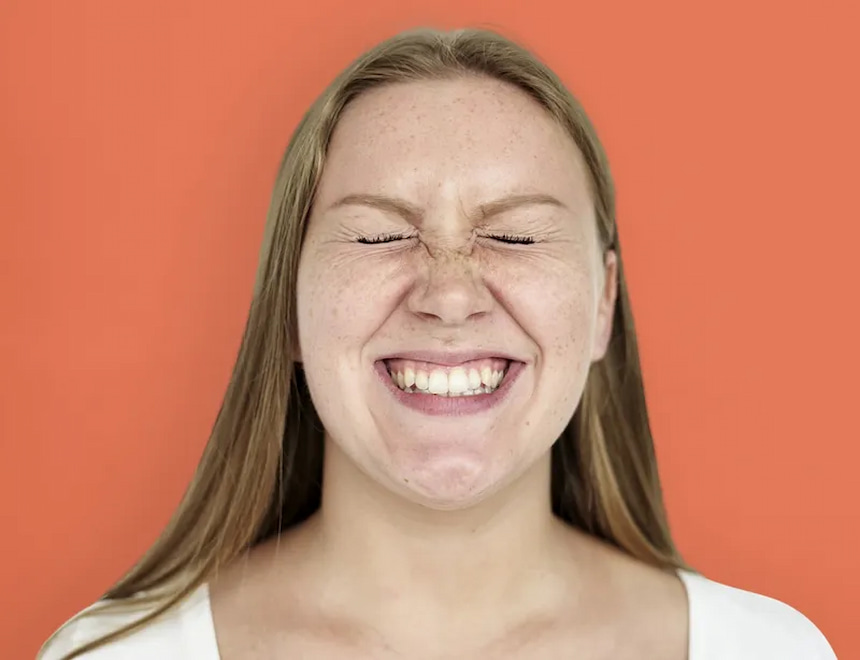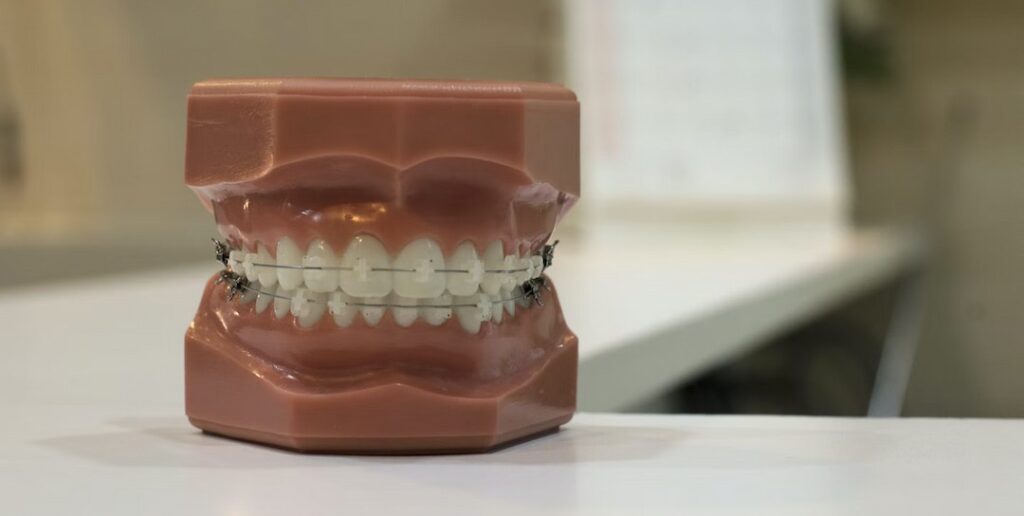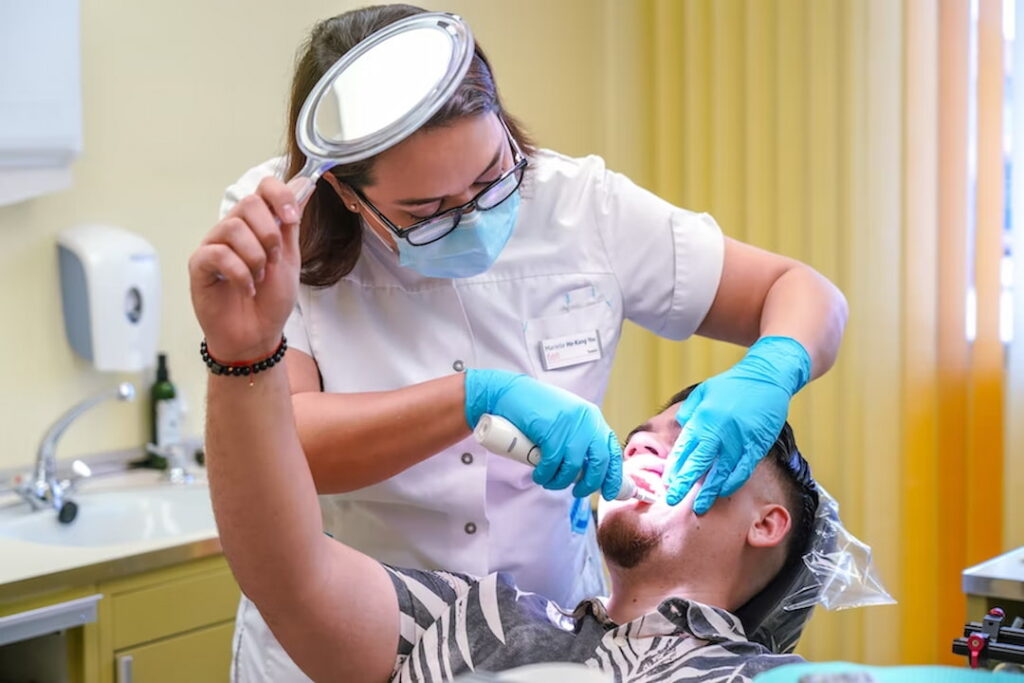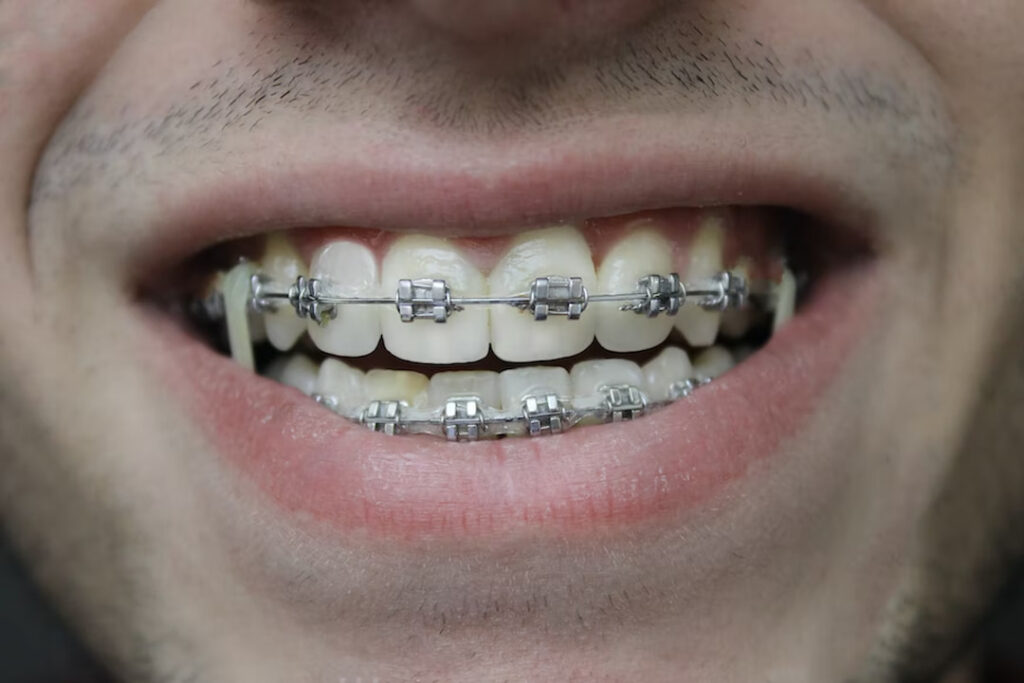
Braces are one of the oldest and most common ways to correct problems with teeth alignment. They can help your overall oral health and make you feel better about your appearance.
For most people, getting braces isn’t a choice. It’s something their orthodontist recommends to correct an issue with their teeth, such as overcrowding or an overbite. In this guide, I will discuss how to know if you need metal braces.
Signs That You May Need Braces
Braces aren’t just for teens anymore. “A lot of people think orthodontics is just for kids, but that’s not true,” says Dr. Shawn Hofkes, DDS, an orthodontist in Brea, CA. “Adults can benefit from braces too.”
In fact, more adults are getting braces today than ever before. If you’re wondering if it’s time to straighten up those teeth, here are the top signs you need to consider braces:
1. Your Teeth Are Crowded or Crooked
Many people are unhappy with the look of their teeth. They may be crowded or crooked. Or they may have gaps between them that are too large. Braces can correct these problems and improve the look of your smile.
Crooked and Crowded Teeth are hard to Brush
When they are crowded, you may have difficulty keeping your teeth clean, which could lead to tooth decay and gum disease. Crowded teeth are harder to brush and floss properly, and this can allow plaque, a sticky film of bacteria, to build up. If not removed, plaque will harden into tartar which is even more difficult to remove.

2. Your Upper Front Teeth Are Protruding or Sticking Out
If you have upper front teeth protruding, that is called an overbite. An overbite is the most common dental condition where the upper teeth extend too far down over the lower teeth. For example, the upper front teeth might stick out farther than the lower teeth, which can be really noticeable when you smile.
Overbite causes
Hereditary: The most common cause of an overbite is heredity.
Forced thumb sucking: When children suck their thumb, they are putting pressure on their upper teeth, causing them to shift forward. This is especially true if they continue to do so after all their baby teeth have fallen out.
Poor oral habits: Habits such as tongue thrusting can cause your teeth to shift, leading to an increased overbite.
Overbites are often treated with braces (or other orthodontic appliances) or jaw surgery. In severe cases, an overbite may make it difficult to chew food properly or cause speech problems.

3. Difficulty Chewing and Biting
If you have teeth that are misaligned, crooked, or have gaps in between them, it can affect your ability to chew food properly. This can cause problems with eating certain foods and may also mean that you will avoid certain foods altogether.
A good treatment would be to wear braces (orthodontic) or clear aligners which will help you to bring your upper teeth in a better position for chewing and biting.
4. Speech Issues
Teeth that are crooked or out of alignment may cause speech issues, such as lisping or slurred words. While some children grow out of these problems as their adult teeth fully grow in, braces may be necessary for others in order to correct these speech issues.
Misaligned Teeth Can Interfere with your Speech
The tongue, lips, teeth, and cheeks play a vital role in speaking. Misaligned lower or upper teeth can interfere with the way your lips touch, which can affect pronunciation. Crowded or crooked teeth can impede speech as well because they may require the tongue to move in an unnatural way to create sounds.
When left untreated, malocclusion may eventually lead to issues with chewing and the quality of your smile, but it’s important to remember that your self-esteem is just as much of a factor in the quality of your life.

5. You Have Gaps Between Your Teeth
Many people are born with gaps between their teeth. In many cases, the gaps close as the child’s adult teeth come in. In other cases, the gaps remain. Gapped teeth can be caused by a variety of factors, including genetics.
The following are some of the most common causes of gapped teeth:
Genetics
If your parents or family members have gaps between their teeth, there’s a good chance that you will as well. In fact, if one or both parents have gaps between their front teeth, there’s an 80% chance that the child will have them as well.
Gap Caused by Missing Teeth
If there are missing adult teeth in the mouth, this will cause gaps between teeth. Missing teeth can occur for a variety of reasons; tooth decay, gum disease, and accidents or injury, being just a few.
In many cases, the most effective way to fix this type of gap is through dental implants. These replace the missing tooth’s root and are used to support dental bridges or dentures to restore the missing tooth.
Overbite
When the upper teeth overlap too far over the lower teeth, this is known as an overbite, and it can cause gaps between teeth. Overbites can be caused by a combination of genetics and poor oral habits such as thumb sucking. Overbites are corrected using orthodontics such as braces.
Teething
While it is possible for a baby’s teeth to become misaligned during breastfeeding, this problem is usually temporary. Teething can also cause slight gaps between the front teeth during childhood, but these typically resolve themselves once all adult teeth have grown in.
Braces for Gapped Teeth
Braces are a common orthodontic treatment used to correct both gapping and crowding issues.

Work by Applying Pressure to Teeth
In order to close a gap between teeth using braces, a person must first have all of their adult teeth. This is because the braces work by applying pressure to the teeth in order to move them into the desired position. Unfortunately, baby teeth will fall out before any significant movement can be made, so a person with only one or two baby teeth left should wait until they lose their remaining teeth before seeking treatment with braces.
Once all the baby teeth have fallen out, and the adult teeth have come in, the individual can be fitted with metal braces. The process involves an initial fitting where molds of the mouth are taken, brackets are glued onto the front of each tooth, and wires are attached that run from bracket to bracket through each tooth. These wires apply tension to all the brackets, which help move each tooth into its new position.
Every few weeks, a person will need to return for an adjustment appointment.
6. You Have Jaw Pain or Popping Sounds in the Jaw
Jaw pain and popping sounds can be caused by the misalignment of teeth. The main reason misaligned teeth can cause jaw pain is the change in the way your jaw closes, which can cause unnecessary wear on the joints that connect your lower jawbone to your skull.
If this condition persists for an extended period of time, then it can lead to jaw pain and/or popping sounds in the jaw.
You need Braces to Straighten Misaligned or Crooked Teeth
Crooked teeth also mean that when you close your mouth, they do not line up properly with each other. This causes unnecessary pressure on certain parts of your teeth, which can lead to tooth decay or even fracture over time if left untreated. Getting braces is a good orthodontic treatment for this problem.

Can You Get Braces for No Reason?
Braces are generally a pretty common thing to see on someone’s teeth. They can be used to correct a wide variety of dental issues, like overbites, underbites, crooked teeth frequently biting gum, fractured or worn teeth, and more. However, braces aren’t just for fixing your teeth. People with perfect smiles get braces too.
To Look Better
Some people choose to get braces simply because they want their teeth to look better. Straightening your teeth can make them look healthier, brighter, and more attractive. Because there are no health risks associated with getting braces on straight teeth, you should feel free to get them if you think that improving the appearance of your smile is worth it.
Braces aren’t exactly cheap, but they’re definitely worth it if you’re interested in getting a brighter and more attractive smile.

What Is the Best Age for Braces?
There is no age limit when it comes to teeth straightening, and people of all ages choose to have this done, whether or not they had braces as a child.
Adult Braces
Many adults are choosing to have braces, and there is a growing number of options available for them, so if you’re considering straightening your teeth but don’t want to wear the traditional metal braces, there are other options you can choose from.
Traditional Style of Braces
The traditional style of braces still remains a popular choice for adults. Their brackets are smaller and more discreet than ever before.
Invisible Aligners
Invisible aligners like Invisalign are becoming more and more popular among adults looking to straighten their teeth. The aligners are much more discreet than traditional braces, as they’re almost invisible when you’re wearing them. They’re also removable, so you can take them out when you eat or brush your teeth.


What you refer to here as an “overbite” is really an overjet. I’m surprised at the error.